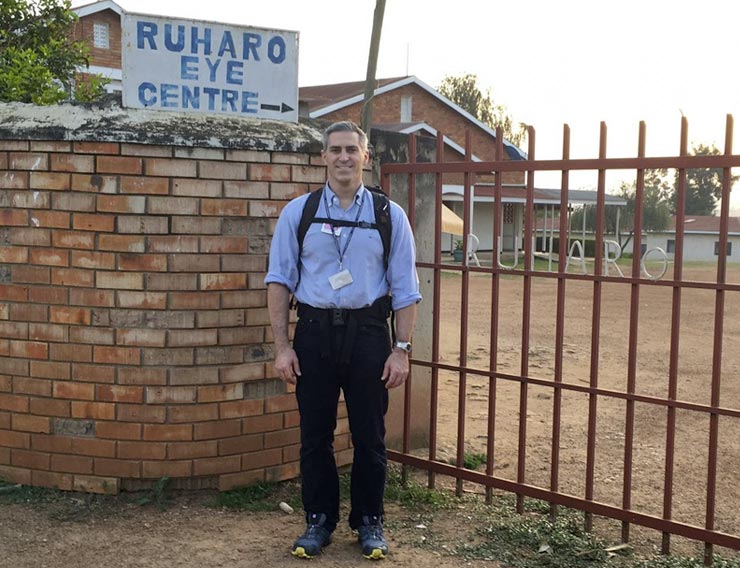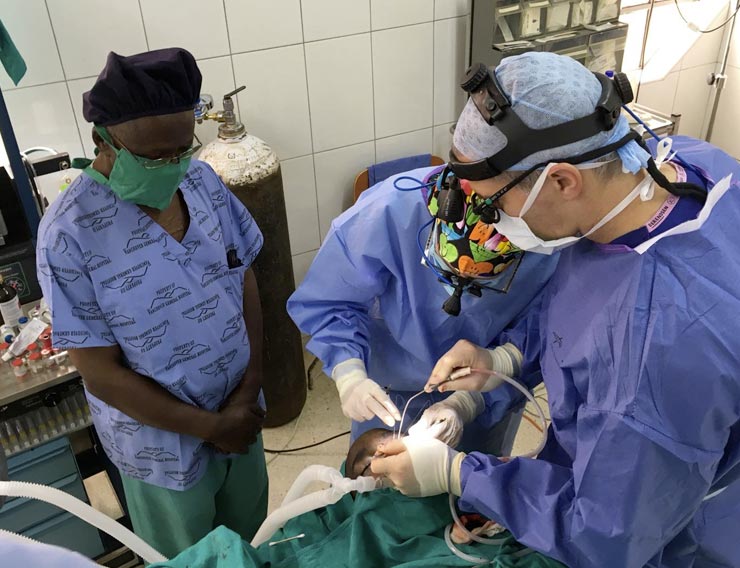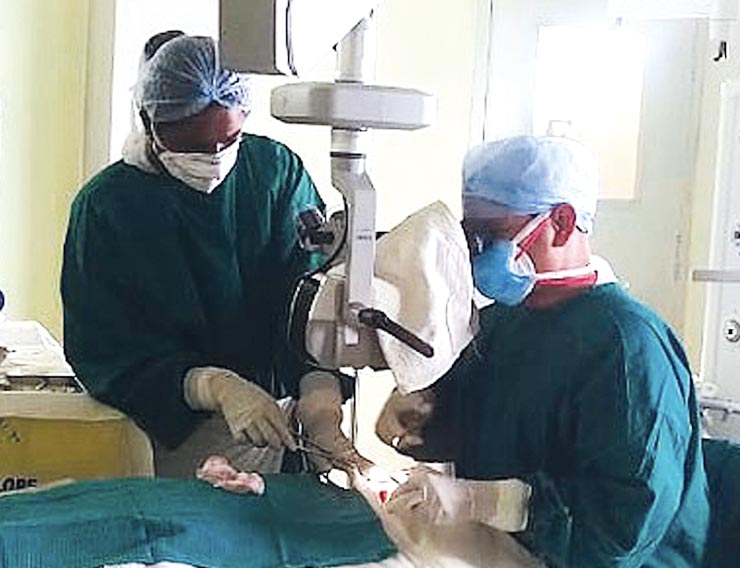WE ARE PASSIONATE ABOUT HELPING OTHERS
Charity & Patient Work
Charity work and Education is a large driving force behind our work at FaceRestoration. We use our skills and knowledge for the safety and betterment of patient communities at home and around the globe.

At FaceRestoration, we believe that the happiest people are not those getting more, but those giving more and we therefore devote significant efforts to patient advocacy and charitable work.




Charity work
Dr Roos is part of a visiting team that visits a rural eye hospital in Ruharo, Uganda. This is a truly humbling experience. Helping families who have travelled for hundreds of miles with their children, often with disabling and sinister eye conditions that have waited far too long for treatment. By teaching the local doctors how to manage such cases, the community benefits as well as the individual.
Likewise, Dr Murthy has helped with immunisation camps in rural India and has contributed to the set up a mobile eye unit in Vellore, India.
Advocating for filler safety
The UK is the only country where there is no legislation regarding who can give dermal filler injections. This non-surgical treatment is no longer just superficial filling of wrinkles, but much more. These treatments do not come under the classification of medical drugs and are therefore not regulated, leading to a dumbing down of the treatments to a level of a beauty treatment. Working with local government and safety groups such as SaveFace we are actively campaigning to make filler a medically delivered treatment in order to improve safety for the susceptible general public.


BTF Patient Advocacy
As patient advocates for the British Thyroid Foundation, we are invited speakers and are currently campaigning to allow improved access for patient support for the psychological and aesthetic impact of thyroid eye disease, both in the NHS and private sector.
Drug Pricing Efforts
We care deeply about equity and access to medications. Some novel therapies are priced at a level that can be considered extortionate. We have published a significant number of papers, including with colleagues at Harvard Business School, in an effort to create market conditions where drug companies’ profit motives are maintained without patients being unable to access the drugs due to the high pricing and monopoly of the drug companies. Though this happens most often in the context of orphan drugs, even in oculoplastics there have been revolutionary drugs for periocular skin cancer denied to NHS patients due to pricing.








